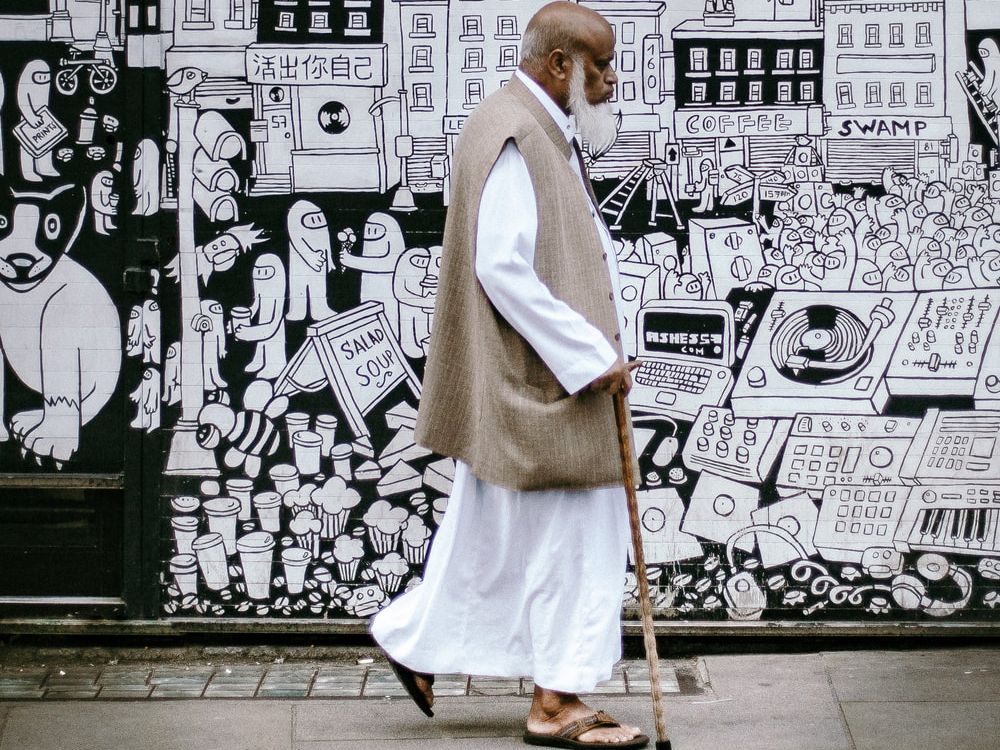|
|
|
Blog post by Aaron Winter, Lancaster University, and Co-Editor, Identities: Global Studies in Culture and Power. Cross-posted from openDemocracy.
Since the horrific Hamas attack in Israel on 7 October and Israel’s assault on Gaza in response, I have heard a great deal about how Jewish people in Britain, as well as other places, are intimidated, afraid and under threat. According to Justin Cohen of The Jewish News, “the Jewish community at the moment is full of dread, full of fear, like I've never seen before”. According to the Campaign Against Antisemitism, British Jews felt “forced to hide” during “anti-Israel” protests in London. Havering Council in London even cancelled its annual Hanukkah menorah display out of fears it could “inflame tensions”, though subsequently reversed the decision. We have also seen similar cancellations in the US.
Blog post by George Newth, University of Bath
In late December 2023, UK prime minister Rishi Sunak gifted his Italian counterpart, Giorgia Meloni, an early Christmas present: his speech at the so-called Atreju rally organized by Meloni’s far-right Fratelli d’Italia (Brothers of Italy) party, contributed to a further legitimization and mainstreaming of far-right politics in Europe. By focusing predominantly on migration, Sunak employed a racist, xenophobic and nationalist discourse. When used by mainstream politicians, such narratives hold the power to euphemize, legitimize and normalize the politics of fear and hatred promoted by the far-right. Sunak’s appearance came barely a year after Meloni’s victory in the 2022 snap elections in Italy. The results of this poll marked a watershed moment in what has been a gradual but steady normalization, mainstreaming and rehabilitation of the far-right following the end of the Second World War. Meloni is Italy’s first far-right prime minister since 1945, and Fratelli d’Italia – the leading party in Italy’s current governing majority - has roots in Italy’s fascist past. In the weeks leading up to the 2022 elections, one of Meloni’s key discursive strategies was to depict her party as ‘centre-right’ and ‘conservative’. Since then, Meloni’s self-representation as a ‘moderate’ has been helped considerably by mainstream voices; Sunak’s speech in Rome was the latest step in this disturbing process.
Gaza, Solidarity and the Right to Protest Blog Series, Guest Edited by Alana Lentin and colleagues
Blog post by Tom Six Dr Tom Six is a Reader in Politics and Performance and Head of the Research Degrees Programme at the Royal Central School of Speech & Drama at the University of London. One of the most striking features of British responses to Israel's recent genocidal violence has been the tenacity with which liberal commentators have defended it. If we are shocked by this willingness to defend the luridly indefensible, however, we should not be surprised by it. Defence of Israel's colonialism at a structural level - sometimes balanced by criticism of its more extreme advocates - is a core commitment of liberal politics and culture, rarely subjected to serious analysis, let alone challenged. I therefore offer, here, an account of a particular example of this phenomenon, the 2022 documentary play Jews. In Their Own Words, which was written by journalist and commentator Jonathan Freedland and staged at the Royal Court Theatre in London in response to incidents of antisemitism in that theatre. Reading this production in dialogue with Freedland's writing about Israel's assault on Gaza, as well as that of other liberal commentators, offers, I argue, some crucial insights into the commitments and strategies of liberal anti-antisemitism and its peculiar relationship to an Israeli state that is currently – even by its own historic standards – flagrantly illiberal. In brief, I argue that what is at stake in liberal accounts of contemporary antisemitism has been widely misdiagnosed. The issue is not so much that exaggerated accusations of anti-Jewish racism are 'weaponized' for political gain, as is widely asserted, but is a criticism so generalizable that it fails to illuminate this particular context very much. More specifically, responses to antisemitism have been widely constructed by liberals so as to constitute plausibly deniable support for Israel. By analysing this strategy of liberal Zionism, we can more accurately critique its attempt to erase colonialism from considerations of Israel, and thus to defend the indefensible.
Blog post by Fatima Rajina, De Montfort University, UK
When we think about Muslim clothing, often our immediate thoughts turn to Muslim women and their sartorial choices. Much of this has been framed via the media because of its incessant coverage, focusing on many European countries and their legislation monitoring Muslim women's clothing choices. This very discussion is in the press currently, as France has banned wearing the abaya in schools for young Muslim girls. It is precisely this framing that made me think about where Muslim men fit into this equation. How do Muslim men choose what they wear in public? What informs their decisions? As a result, in my Identities article, 'British Muslim men and clothes: the role of stigma and the political (re)configurations around sartorial choices', I diverted from the fixation on Muslim women and interrogated the political imagination and (re)configuration of dress practices among British Bangladeshi Muslim men. I selected three attires, the lungi, the funjabi and the thobe, because of what they represent for Bangladeshis. The lungi and funjabi, although associated with Bangladeshis, carry different meanings in the diaspora than in Bangladesh. I explore how these two garments are worn in the UK and how they (re)appear in public. In contrast, the thobe projects an Islamic universalism not afforded to the first two garbs and carries a different form of visibility. I focus on how British Bangladeshis of varying age groups interact with different forms of attire and what it means for their identity negotiation in the public sphere. |
|
Explore Identities at tandfonline.com/GIDE |
|
The views and opinions expressed on The Identities Blog are solely those of the original blog post authors, and not of the journal, Taylor & Francis Group or the University of Glasgow.




